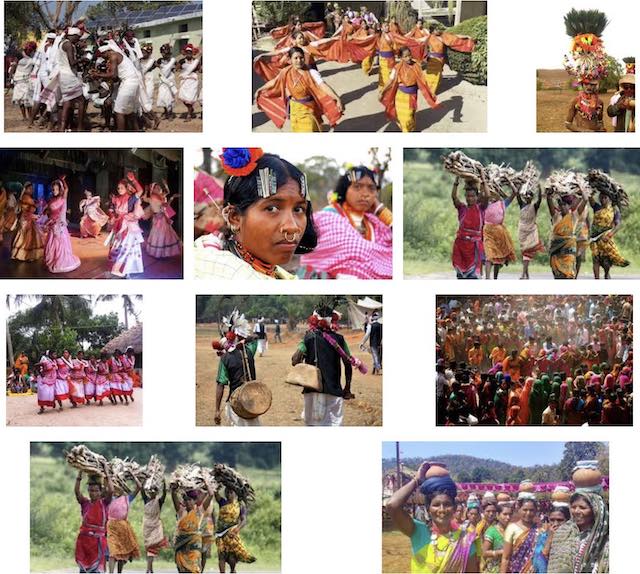Review: Medicine and Life Sciences in India. Subbarayappa, B. V. (Ed.) 2001. New Delhi: Munshiram Manoharlal Publishers Pvt. Ltd. Pp: 771. Price not given.
by D.P. Agrawal & Lalit Tiwari
Of late the West is veering round to the Alternative Medicine Systems, as allopathy has failed to cure the serious diseases afflicting mankind. No wonder that the global herbal trade has peaked to about $60 billion and is growing at the rate of 10% annually. India has very ancient medicine systems, both in the literate and the folk traditions, and gradually their worth is being recognised globally.
Diseases are the bane of humankind ever since its advent on this planet. Humans have been fighting against a variety of diseases since prehistoric times. Eventually humans developed indigenous local systems of medicine. Indian medicine system is very ancient. Right from the Indus Valley Civilization, the evidence for the existence of a medicine system can probably be traced from the archaeological remains of Harappa and Mohenjodaro. The Harappan people used plant drugs, animal products and minerals. […]
Sathyanarayana Bhat presents a very lucid paper, “Folk Medicine in India” in this edited volume. No doubt that Ayurveda has evolved from the folk medicine. In his article he summarises the data on traditional herbalists, healers, snakebite healers, kitchen medicine, traditional midwifery, tribal medicinal practices, etc.
Source: Review: Medicine and Life Sciences in India
Address : http://www.indianscience.org/reviews/t_rv_agraw_medicine.shtml
Date Visited: 5 March 2022
“It was assumed that tribal people have same health problems, similar needs and hence the uniform national pattern of rural health care would be applicable to them as well, albeit with some alteration in population: provider ratio. The different terrain and environment in which they live, different social systems, different culture and hence different health care needs were not addressed.” – Abhay Bang in Report of the Expert Committee on Tribal Health >>
Up-to-date reports by Indian experts and journalists
Search tips
Combine the name of any particular state, language or region with that of any tribal (Adivasi) community.
Add keywords of special interest (music, poetry, dance just as health, sacred grove and biodiversity); learn about the rights of Scheduled Tribes such as the “Forest Rights Act” (FRA); and the United Nations “Declaration on the Rights of Indigenous Peoples”, “Universal Declaration of Human Rights”, “women’s rights”, or “children’s right to education”.
Ask a question that includes “tribal” or “Adivasi”, for instance: “Adivasi way of life better?” (or “tribal way of life worse?”)
Specify any particular issue or news item (biodiversity, bonded labour and human trafficking, climate change, ecology, economic development, ethnobotany, ethnomedicine, global warming, hunter-gatherers in a particular region or state, prevention of rural poverty, water access).
For official figures include “scheduled tribe ST” along with a union state or region: e.g. “Chhattisgarh ST community”, “Himalayan tribe”, “Scheduled tribe Tamil Nadu census”, “ST Kerala census”, “Particularly Vulnerable Tribal Group Jharkhand”, “PVTG Rajasthan”, “Adivasi ST Kerala”, “Adibasi ST West Bengal” etc.
In case the Google Custom Search window is not displayed here try the following: (1) toggle between “Reader” and regular viewing; (2) in your browser’s Security settings select “Enable JavaScript” | More tips >>
Note: hyperlinks and quotes are meant for fact-checking and information purposes only | Disclaimer >>
List of websites covered by this Google custom search engine
Academia.edu (platform for academics to share research papers) – www.academia.edu
Archive.org – https://archive.org
Centre for Science and Environment – https://www.cseindia.org
Current Conservation – https://www.currentconservation.org
Development and Cooperation (D+C) https://www.dandc.eu
Down To Earth (India) – www.downtoearth.org.in
India Environment Portal – www.indiaenvironmentportal.org.in
Harnessing Nature Magazine – https://harnessingnature.online
Mongabay-India – https://india.mongabay.com
M S Swaminathan Research Foundation – www.mssrf.org
Navdanya (protecting India’s biodiversity based food heritage) – https://navdanya.org
Third World Network (Penang, Malaysia) – https://twn.my
The Shola Trust (nature conservation in the Nilgiri region) – www.thesholatrust.org

Indian online periodicals and platforms | Images view >>
~ ~ ~
Personalize your CustomSearch by combining other search words >>
(e.g. name of a tribal community and region, a craft, or dance and puppetry)
Research the above issues with the help of Shodhganga: A reservoir of theses from universities all over India, made available under Open Access >>
Note: hyperlinks and quotes are meant for fact-checking and information purposes only | Disclaimer >>
Adivasi communities traditionally depended on the forest for all their nutritional needs. They subsisted mainly on fruits, vegetables, tubers, fish, small game as well as the occasional crop they grew, predominantly coarse grains. However, as time passed and the nature of, as well as their access to, forests changed, their diet started becoming deficient. […]
This deficiency started manifesting in the form of rampant malnutrition, among adults and children alike, underweight babies as well as high maternal mortality [and] increased susceptibility to Tuberculosis among the Adivasis.
Blog post “Gardening their way to Good Health” by ACCORD – Action for Community Organisation, Rehabilitation and Development (Accordweb, 14 March 2017) | Backup file:
Learn more
Denotified Tribe vs. “criminal tribe“| Imprisonment & rehabilitation
Government of India
President Droupadi Murmu (official website)
National Commission for Scheduled Tribes | Posts
Human Rights Commission (official website) | Posts
Health and nutrition | Recommendations by the Expert Committee
Women | Safe search | President Droupadi Murmu on women’s empowerment